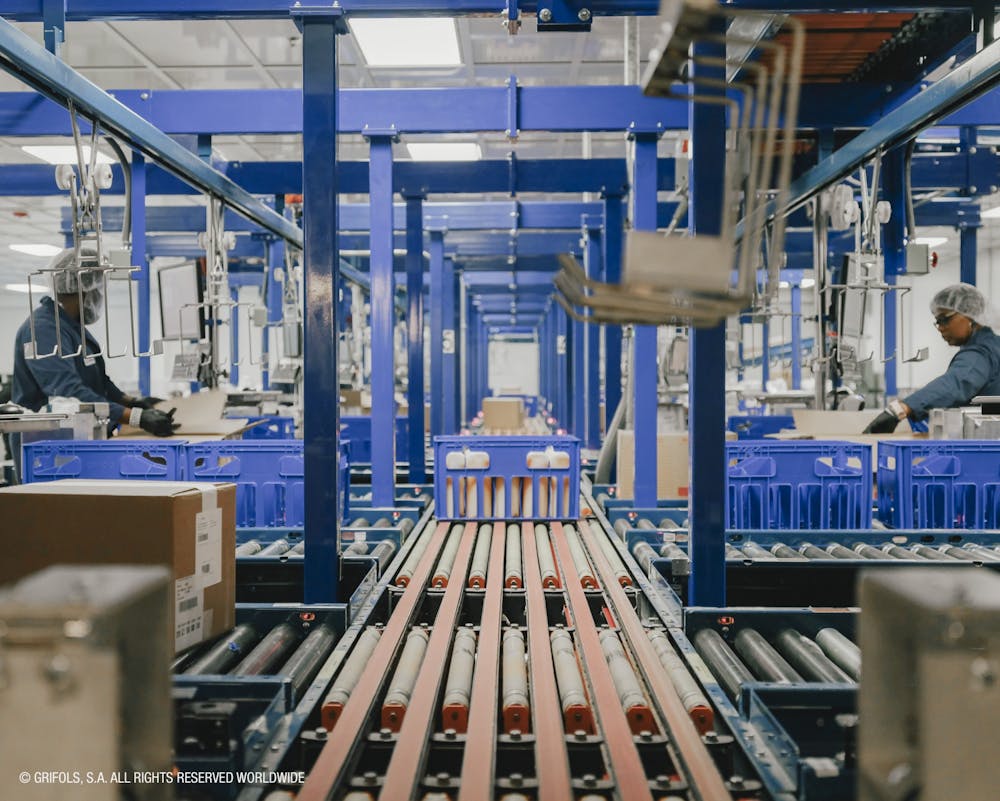A medical facility in Clayton, North Carolina, could be crucial to the development of a treatment for COVID-19.
Grifols, S.A., a multinational pharmaceutical and chemical manufacturer based in Barcelona, Spain, is collaborating with the U.S. Food and Drug Administration, U.S. Biomedical Advanced Research Development Authority and other federal health agencies on a development process for a COVID-19 treatment therapy in the company's Clayton facility. Grifols originally constructed the facility in 2014 to combat the outbreak of Ebola in West Africa.
Plasma fractionation, the process of separating various components of blood plasma, is the central component of the treatment, which is being studied in centers across the U.S. The Grifols-government partnership hopes to use antibodies extracted from the blood plasma of recovered COVID-19 patients to create a sterile solution known as immune globulin. This solution would then be given as a treatment to people diagnosed with the virus, if proven effective.
The exploration of this treatment will help preclinical and clinical studies determine whether the use of immune globulin can live up to its promise as a viable treatment option for COVID-19. With the opening of a new fractionation plant next year, Grifols in Clayton will be the world’s largest fractionation site, chief innovation officer David Bell said in an email to The Daily Tar Heel.
Grifols, which focuses predominantly on plasma-based medicines, is already a leading producer of these products worldwide. With more than 250 collection centers, Grifols runs the largest plasma donor center network in the United States, Bell said in the email.
Bell said the federal government will help identify consenting donors and refer them to Grifols. As of Monday, the company announced it has officially begun the process of identifying, screening and selecting such donors from a handful of cities that had a high number of COVID-19 cases earlier in the outbreak, including Chicago, Dallas, Los Angeles and Seattle.
The use of convalescent plasma to create immune globulin was also attempted during the outbreaks of other respiratory infections, including the 2003 SARS-CoV-1 epidemic, the 2009-2010 H1N1 pandemic and the 2012 MERS-CoV epidemic.
Most notably, the hepatitis B immune globulin, HBIg, proved successful in providing immediate, short-term protection against the hepatitis B infection. The immune globulin does not have the power to fully prevent hepatitis B, however — that power remains with the vaccine.
Immunoglobulin therapy, while successful in fighting symptoms after infection, is not a preventative measure like vaccination.



